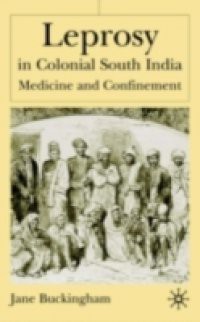Leprosy is a neglected topic in the burgeoning field of the history of medicine and the colonized body. Leprosy in Colonial South India is not only a history of an intriguing and dramatic endemic disease, it is a history of colonial power in nineteenth-century British India as seen through the lens of British medical and legal encounters with leprosy and its sufferers in south India. Leprosy in Colonial South India offers a detailed examination of the contribution of leprosy treatment and legislative measures to negotiated relationships between indigenous and British medicine and the colonial impact on indigenous class formation, while asserting the agency of the poor and vagrant leprous classes in their own history.

